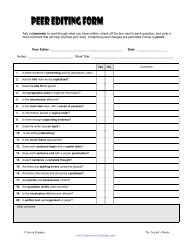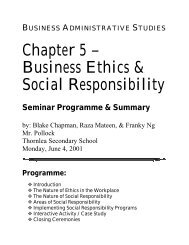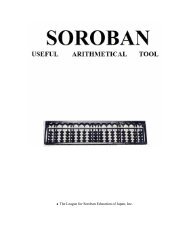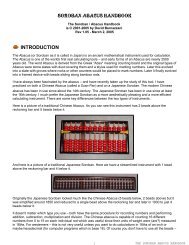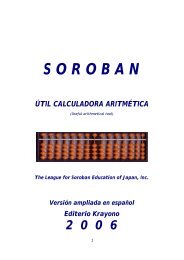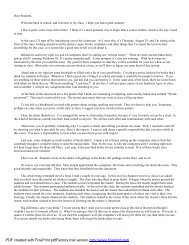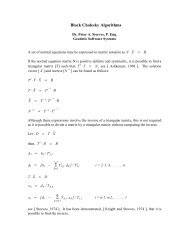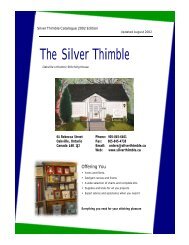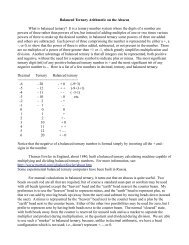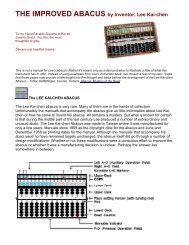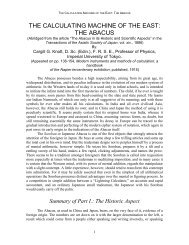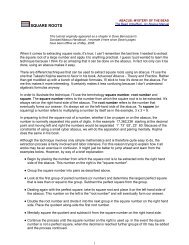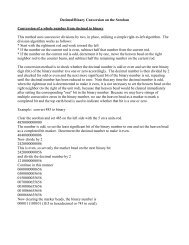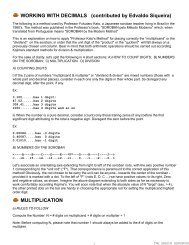Sexing Political Identities-Nationalism as Heterosexism.pdf
Sexing Political Identities-Nationalism as Heterosexism.pdf
Sexing Political Identities-Nationalism as Heterosexism.pdf
Create successful ePaper yourself
Turn your PDF publications into a flip-book with our unique Google optimized e-Paper software.
For example, under British nationality laws, until 1948 a British woman<br />
w<strong>as</strong> deemed an ‘alien’ if she married a non-British subject and until 1981 she<br />
could not p<strong>as</strong>s on her nationality (in her own right) to children born abroad<br />
(Klug 1989: 21–2). Roxana Ng notes the discriminatory effects of ‘independent<br />
cl<strong>as</strong>s’ or ‘family cl<strong>as</strong>s’ specication of landed immigrant status in<br />
Canada. The ‘family cl<strong>as</strong>s’ category tends to disadvantage married women,<br />
who are <strong>as</strong>sumed to be dependent. ‘Furthermore, once categorized <strong>as</strong> “family<br />
cl<strong>as</strong>s” immigrants, these women are ineligible for social <strong>as</strong>sistance and . . .<br />
programs available to their “independent cl<strong>as</strong>s” counterparts and other<br />
Canadians’ (Ng 1993: 56). In Australia, de Lepervanche notes that:<br />
aboriginal people were not even counted in the census until 1967. Some non-<br />
European men were allowed to reside in Australia after 1901, but non-European<br />
women particularly were usually excluded or, if permitted entry . . . the<br />
permission depended on satisfactory {evidence of} their husbands’ or fathers’<br />
capacity to support them.<br />
(1989: 167)<br />
Insofar <strong>as</strong> states <strong>as</strong>sume responsibility for provision of b<strong>as</strong>ic needs, claims<br />
to citizenship <strong>as</strong>sume life-sustaining importance, determining not only one’s<br />
obligations but also one’s rights – to work, stable residency, legal protections,<br />
educational, health and welfare benets. Hence, the denial of same-sex<br />
marriage prevents homosexuals from enjoying the membership privileges<br />
available to heterosexual couples. In regard to immigration and citizenship<br />
rights, this discrimination works across state/nation borders. But it also works<br />
within communities in the form of (heterosexist) family law and homophobic<br />
policies.<br />
The battle of the nursery also involves the ideological reproduction of<br />
group members. Under heteropatriarchal conditions, women not only bear<br />
children but are expected to rear them. Especially within the family, women<br />
are <strong>as</strong>signed the primary responsibility for inculcating beliefs, behaviors,<br />
and loyalties that are culturally appropriate and ensure intergenerational<br />
continuity. This cultural transmission includes learning the ‘mother tongue’<br />
– the codied meaning system – <strong>as</strong> well <strong>as</strong> the group’s identity, symbols,<br />
rituals, divisions of labor, and worldviews. Research indicates that from an<br />
early age, children are aware of and identify specically with a ‘homeland.’<br />
Robert Coles studied the ‘political life of children’ on ve continents and<br />
concluded that everywhere, ‘nationalism works its way into just about every<br />
corner of the mind’s life,’ fostering children’s recognition of their nation’s<br />
ag, music, slogans, history, and who counts <strong>as</strong> ‘us’ and ‘them’ (1986: 60, 63<br />
<strong>as</strong> quoted in Elshtain 1992: 149).<br />
Of course, ideological reproduction implies reproduction of the community’s<br />
beliefs about sex/gender, race/ethnicity, age, cl<strong>as</strong>s, religion, and other axes of<br />
‘difference.’ Repression of non-heterosexual identities and ideologies reduces<br />
their potential to disrupt state-centric hierarchical scripts, either conceptually<br />
46 International Feminist Journal of Politics



